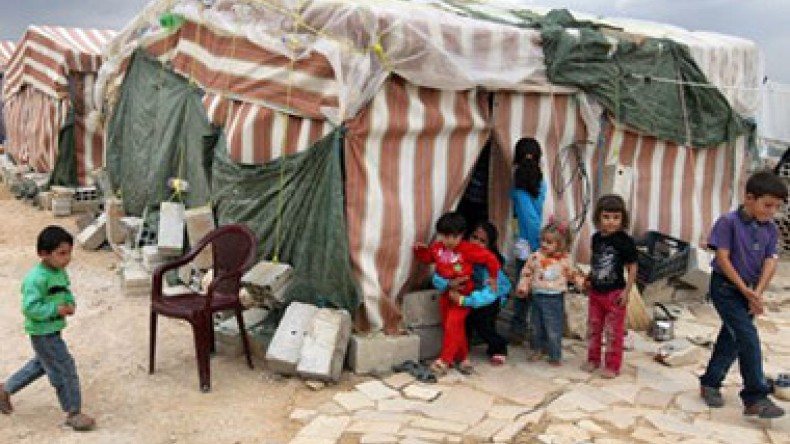
Syria war waged on all regional countries - Mark Glenn
Press TV has conducted an interview with Mark Glenn, co-founder of Crescent and Cross Solidarity Movement, about the United Nations refugee agency (UNHCR) saying one out of five people living in Lebanon are refugees who have fled the nearly three-year-long conflict in neighboring Syria.
- Mr. Glenn, just where is the Syrian refugee crisis heading? I mean can regional countries really cope with the size and magnitude of the problem?
- Well no, of course they cannot and this was exactly what was factored into the entire equation when the United States, her Western allies and Israel went about this process of destroying Syria.
This is not just a war against Syria, it is a war against all the neighboring countries of Syria because as demonstrated by this news, the refugees that are flooding into these countries particularly in Lebanon which has a very small population, you are talking about one-fifth of the population now are made up by these refugees.
And so Lebanon, just using this as one example, has to absorb these people, has to feed these people, clothe them, house them, give them medical attention and all of the rest of it.
So this is not just a war that has been waged against Syria, it has been waged against all of these countries. Same thing took place with Iraq when Iraq was destroyed. You had refugees numbering in millions flooding into Jordan and to other countries and so this just fits in with both Israel and United States’ plan of destabilizing all of the countries in the Middle East so as to make Israel the lone super power in the region.
- And of course many blame the Syrian crisis on the West but the other question that comes to mind is that is the West really helping these countries that are taking in refugees, like Lebanon?
- No, what the West will do particularly in case as such as Jordan and to a lesser extent Lebanon, is that they will use this to put pressure on the governments of these countries in order to exact certain concessions from them that are favorable towards Israel.
Jordan will go to the United States and say you know, we have all these refugees from Syria that we have to deal with, we need more money. The United States will say well of course, we will give you the money but here is what you are going to do when Netanyahu makes his next demands.
With regards to Lebanon the pressure is going to be put on the government there to rein in Hezbollah and to lessen the connections with Iran.
And so at the same time while the United States and these countries create the problem, then they will come in and they will offer solutions to this problem but attached to these solutions will be concessions that are not in the interests of these countries in the long-term or in the short-term.
Newsfeed
Videos






























